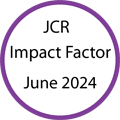Simple Prognostic Criteria Can Definitively Identify Patients Who Develop Severe Versus Non-Severe Dengue Disease, or Have Other Febrile Illnesses
Abstract
Background: Severe dengue disease (SDD) (DHF/DSS: dengue hemorrhagic fever/dengue shock syndrome) results from either primary or secondary dengue virus (DENV) infections, which occur 4 - 6 days after the onset of fever. As yet, there are no definitive clinical or hematological criteria that can specifically identify SDD patients during the early acute febrile-phase of disease (day 0 - 3: < 72 hours). This study was performed during a SDD (DHF/DSS) epidemic to: 1) identify the DENV serotypes that caused SDD during primary or secondary DENV infections; 2) identify simple clinical and hematological criteria that could significantly discriminate between patients who subsequently developed SDD versus non-SDD (N-SDD), or had a non-DENV fever of unknown origin (FUO) during day 0 - 3 of fever; 3) assess whether DENV serotype co-infections resulted in SDD.
Methods: First serum samples, with clinical and hematological criteria, were collected from 100 patients during the early acute febrile-phase (day 0 - 3: < 72 hours), assessed for DENV or FUO infections by IgM- and IgG-capture ELISAs on paired serum samples and by DENV isolations, and subsequently graded as SDD, N-SDD or FUO patients.
Results: In this study: 1) Thirty-three patients had DENV infections, predominantly secondary DENV-2 infections, including each SDD (DHF/DSS) case; 2) Secondary DENV-2/-3 and DENV-2/-4 serotype co-infections however resulted in N-SDD; 3) Each patient who subsequently developed SDD, but none of the others, displayed three clinical criteria: abdominal pain, conjunctival injection and veni-puncture bleeding, therefore each of these criteria provided definitively significant prognostic (P < 0.001) values; 4) Petechia, positive tourniquet tests and hepatomegaly, and neutrophilia or leukopenia also significantly identified those who: a) subsequently developed SDD versus N-SDD, or had a FUO; b) subsequently developed SDD versus N-SDD; c) subsequently developed N-SDD versus FUOs, respectively.
Conclusions: This is the first report of simple definitively prognostic criteria for SDD patients, including the first assessment and confirmation of conjunctival injection. The three definitive clinical criteria used alone, or supported by the other four criteria, could be essential for specifically identifying those patients needing prompt hospital-based therapies to lessen or avert SDD, without unnecessary hospitalization of the other patients.
doi:10.4021/jocmr694w











